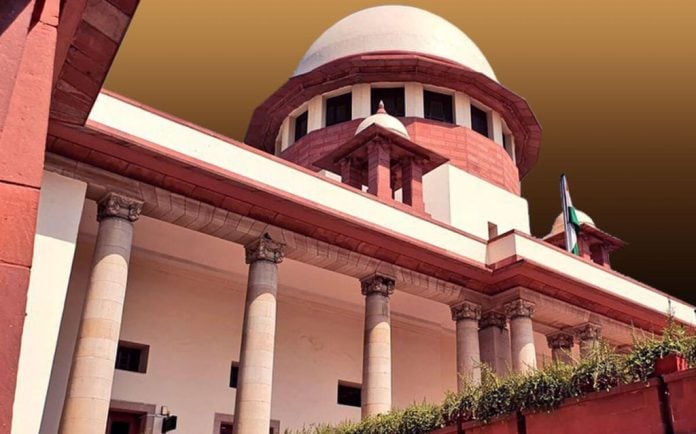The Supreme Court listed the petitions challenging the Electoral Bonds scheme on the grounds that it facilitated anonymous funding of political parties, for final hearing in the third week of March.
The matter came up for hearing on Tuesday before the Bench of Chief Justice of India D.Y. Chandrachud and Justice P.S. Narasimha, which listed it for final hearing in March this year.
The Bench further took up two other petitions related to the issue of bringing political parties under the Right to Information (RTI) Act and regarding certification under the Foreign Contribution Regulation (FCRA) Act for political funding.
It said these two petitions were distinct from the Electoral Bonds case and would be heard separately in April.
While issuing notice on both, the Apex Court ruled that reply should be filed in the petition related to bringing political parties under the ambit of RTI in two weeks and by the end of this month in the plea related to FCRA.
The plea regarding RTI would be heard in early April, while the FCRA one would be taken up in the second week of April, it added.
An electoral bond is an instrument in the nature of a promissory note or bearer bond, which can be purchased by any individual, company, firm or association of persons, provided the person or body is a citizen of India or incorporated or established in India.
The bonds are issued specifically for the purpose of contributing funds to political parties in its existing scheme in the country.
The term electoral bond was introduced through the Finance Act 2017, which has amended three other statutes – the RBI Act, the Income Tax Act and the Representation of People Act, for enabling the introduction of such bonds.
This act was passed as a money bill, which meant that it did not require the assent of the Rajya Sabha.
Several petitions have been filed in the Supreme Court, challenging at least five amendments made to different statutes through the Finance Act, 2016 and its 2017 amendment on the ground that they have opened doors to unlimited and unchecked funding of political parties.
A petition by two NGOs – Association for Democratic Reforms and Common Cause said that the money bill route was adopted in order to bypass the Rajya Sabha, where the ruling BJP government did not have a majority.
Expressing concern over the consequences of these amendments, which said that the Election Commission of India (ECI) need not mention the names and addresses of those contributing by way of electoral bonds, the petition contended that the amendments would kill transparency in political funding.
The Companies Act, 2013 and the amendments made to Section 236 of the Foreign Contribution (Regulation) Act, 2010 have removed the cap on donations by the amendment by opening the avenues of foreign contribution to Indian political parties, it added.
The top court of the country had dismissed an application in March, 2021, which sought stay on the sale of Electoral Bonds.


